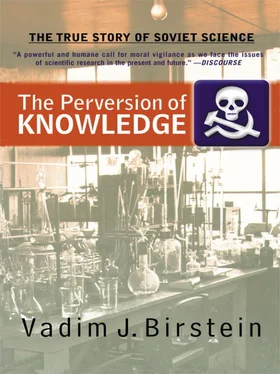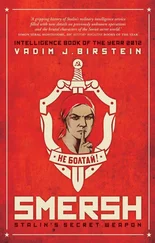21. In his official biography, Putin presents this work for the KGB as his intention to write his doctoral thesis (Putin, Vladimir, First Person [New York: PublicAffairs, 2000], pp. 86–87).
22. “Profile of Vladimir Putin, Russia’s new PM,” Reuters, August 9, 1999.
23. Wines, Michael, “The Kremlin’s Keeper, the World at His Fingers, Is Under a Cloud,” NewYork Times , September 16, 1999.
24. The former naval captain Aleksandr Nikitin was arrested in 1996 on charges of treason and leaking state secrets to the Norwegian environmentalist group Bellona. The FSB’s charges were dismissed during the trial at the beginning of 1999, but in November 1999, Nikitin was charged for the eighth time. The new FSB indictment was based on secret and retroactive normative acts. On December 29, 1999, the court in St. Petersburg acquitted Nikitin on charges that he had revealed state secrets while working for Bellona. Judge Sergei Golets stated that the accusations were a violation of the Russian Constitution because they were based on secret orders from the Defense Ministry that Nikitin could not have known about. Judge Golets also cited the European convention on human rights, to which Russia is a signatory. Details are available at www.bellona.no.
25. Kudrik, I., “FSB Chief Publicly Convicts Nikitin,” Bellona , July 9, 1999, available at www.bellona.no.
26. The Russian Supreme Court confirmed the St. Petersburg City Court acquittal of Nikitin (Kudirk, I., T. Nilsen, and R. Forseth, “Supreme Victory!” Bellona, April 17, 2000, available at www.bellona.no/imaker?id=16538&sub=1).
27. “Russia Acquits Nuclear Dissenter Nikitin,” Reuters, September 14, 2000 (on-line version).
28. Gordon, Michael R., “Russia Frees Journalist Who Exposed Nuclear Dumping,” New York Times , July 21, 1999.
29. “Russia Gripped by ‘Spy Mania,’” Reuters, November 21, 2000 (on-line version).
30. Hoffman, David, “Court Orders New Trial for Journalist,” Washington Post , November 23, 2000.
31. Levitin, Carl, “Russian Acoustics Scientists Defended on ‘Secrets’ Charges,” Nature 392 (1998): 638.
32. “Russian Environmental Researcher Falls Foul of Security Services,” Nature 400 (1999): 300.
33. Gessen, Maria, “Russians, Young and Old, Are Forced Back to Uniform,” New York Times , February 29, 2000; Badkhen, Anna, “When Is a Spy Really a Spy?” St. Petersburg Times 615, October 27, 2000 (on-line version).
34. “Predstavlenie nachalos” [The show has begun], Kommersant , May 22, 2000.
35. Williams, Daniel, “Russian Case Ignites Fears of Soviet Past,” Washington Post , August 3, 2000.
36. Tracy, Jen, “Russia’s Electronic Police Get Carte Blanche,” St. Petersburg Times , January 14, 2000 (on-line version).
37. Cited in Piontkovsky, Andrei, “Preemnik po rezhimu” [The successor of the regime], Novaya Gazeta , December 23, 1999 (on-line version, in Russian).
38. Tracy, “Russia’s Electronic Police.”
39. Cohen, Ariel, “Analysis: Russian New Information Security Doctrine—An Orwellian Deja Vu,” UPI, October 10, 2000 (on-line version).
40. A part of the letter was cited in “Russian Scientists Demand Stricter Control over State Secrets,” BBC Monitoring , November 10, 2000 (on-line version).
41. “Russian Nobel Winner Meets Putin, Asks for Funding,” Reuters, October 13, 2000 (on-line version).
42. See, for instance, Smithson, “Toxic Archipelago” and Biological Weapons.
43. Friedman, Robert I., Red Mafia: How the Russian Mob Has Invaded America (Boston: Little, Brown and Co., 2000), p. 156.
44. Tucker, Jonathan B., and Amy Sands, “An Unlikely Threat,” Bulletin of the Atomic Scientists 55 (4) (July/August 1999): 46–52.
45. “Russians Mostly Shrug Off Putin’s KGB Past,” Reuters, August 11, 1999.
46. Politkovskaya, Anna, “Esli smotret’ cherez pritsel, to deti pokhozhi na boevikov: Reportazh s mesta otsutstviya gumanitarnoi katastrofy” [In hindsight, children look like terrorists: A report from the location where “there is no humanitarian catastrophe”], Novaya Gazeta , October 15, 1999 (on-line version, in Russian).
47. “Zhurnalist Novoi Gazety Anna Politkovskaya nagrazhdena v N’yu-Iorke premiei imeni Artyoma Borovika” [The Novaya Gazeta journalist Anna Politkovskaya was awarded the Artyom Borovik Prize in New York], NTV Channel , April 27, 2001 (on-line version).
48. “Oktyabr’ 30, 1999: Den’ pamyati zhertv politicheskikh repressii: Itogi desyatiletiya pozitsii obshchestva ‘Memorial’” [October 30, 1999: A day of commemorating the victims of political repressions: A summary, the position of the “Memorial” society],” Polit.ru , November 2, 1999 (on-line version, in Russian).
49. “Putin Commemorates Kremlin Plaque Featuring Stalin,” Agence France Presse, May 10, 2000 (on-line version).
50. “Stalin Depicted on Russian Money for First Time,” Agence France Presse, May 5, 2000 (on-line version).
51. Yavlinsky, Grigory, “Sham Reform Leads to National Bolshevism,” Moscow Times , January 30, 2001.
1. Memorial’s Archive (Moscow), fond 171. Prisoner cards from Vladimir Prison.
2. Ibid.
3. There are two cards for Molochnikov in the file of Vladimir Prison, one with No. 21, and the second without a number.
4. Memorial’s Archive (Moscow), fond 171. Prisoner cards from Vladimir Prison.
5. Ibid.
6. This document and the following documents No. 8 and 23 represent shortened versions of prisoner cards rewritten in 1990 by the former member of Vladimir Prison administration, Mrs. V. Danilova (during the late 1940s–1950s she was in charge of the prison’s card file), for the local museum in the city of Vladimir. Evidently, such information as the movement of a prisoner through different cells in Vladimir Prison was still considered secret in 1990.
7. Tumerman, like with his wife Shatunovskaya (Document 6), was released and rehabilitated “because of the lack of evidence of his criminal activity” (a phrase commonly used for the rehabilitation of Soviet political prisoners).
8. As in ibid.
9. Memorial’s Archive (Moscow), fond 171. Prisoner cards from Vladimir Prison.
10. From the Presidential Archive (Moscow), F. 3. Phrases shown in italic are handwritten.
11. There are two cards for Mairanovsky in the file of Vladimir Prison.
12. From the file of Vladimir Prison.
13. Memorial’s Archive (Moscow), fond 171. Prisoner cards from Vladimir Prison.
14. This decision was taken on the basis of an appeal by Zoya Zarubina, Eitingon’s stepdaughter, to Chief Military Prosecutor Borisoglebsky (Jeffery, Inside Russia , p. 62).
15. Memorial’s Archive (Moscow), fond 171. Prisoner cards from Vladimir Prison.
16. Ibid.
17. Ibid.
18. Usually if a patronymic name is mentioned for foreigners in MGB documents, that meant the foreigner spoke Russian.
19. Memorial’s Archive (Moscow), fond 171. Prisoner cards from Vladimir Prison.
20. See Note 6.
APPENDIX I: BIOGRAPHICAL SKETCHES
Biographies of some key individuals are given below. “Not rehabilitated” in the biographies of state security individuals means that they were considered for rehabilitation in the late 1980s–1990s but were not rehabilitated because of the crimes they committed as NKVD/MGB officers.
Abakumov, Viktor(1908–1954) joined the OGPU (Economic Department) in 1932. Until 1934, in different NKVD departments. Head of the city of Rostov-on-Don NKVD Regional Branch (1939–1941), head of the NKVD Special Department and deputy NKVD commissar (1941–1943), head of the Main Directorate SMERSH (“death to spies”) of Ministry of Defense (1943–1946), MGB minister (1946–1951). Arrested on August 12, 1951, and on December 19, 1954, sentenced to death and shot. Not rehabilitated (Petrov and Skorkin, Kto rukovodil NKVD , pp. 80–81).
Читать дальше











